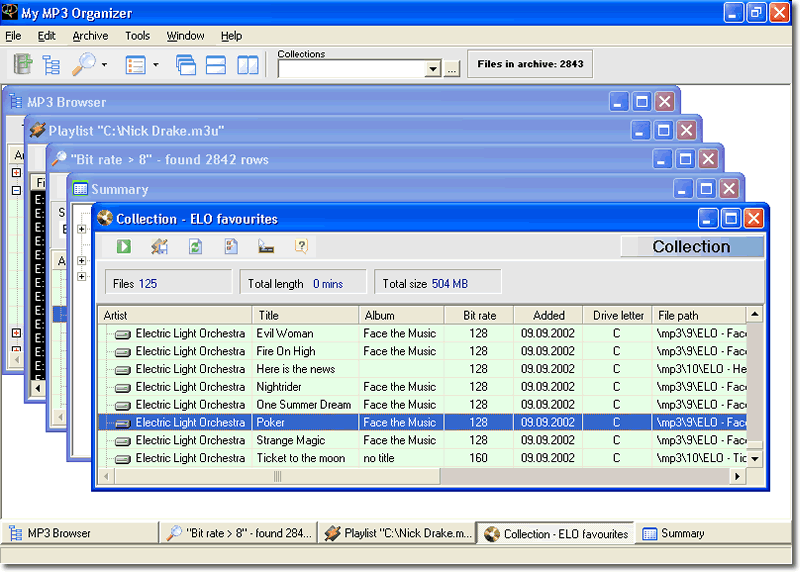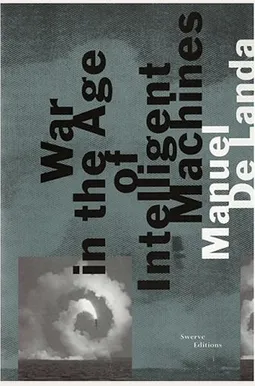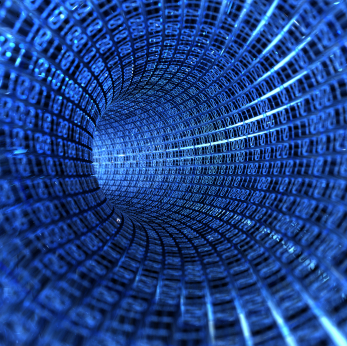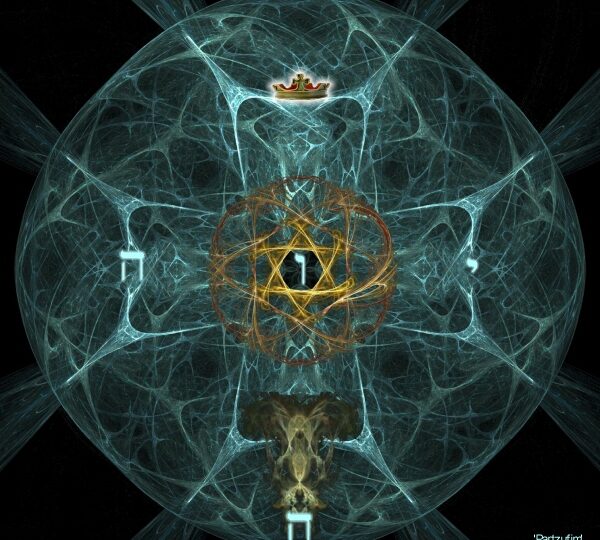
The Analog Life
Last month Paul Miller—the avant-garde DJ, musician and theorist who always appends his name with “aka DJ Spooky that Subliminal Kid”—finally released a collection of essays he has been editing for ages on digital and sampling culture, called Sound Unbound. It’s a cool book, and I’m not surprised. I first met Paul at the Village Voice in the early 90s, when I recognized the voodoo vévé for Legba that appeared on one of his stickers. Over the years, his DJ mixes, thoughts, and restless career represent a lot of what I continue to love about digital culture. Paul is relentlessly interconnected and multi-disciplinary, refuses to be locked into one career identity or scene, and restlessly moves between worlds. He thinks and acts like he spins, an endless collage that draws equally from high and low, here and there, old and new.
All this is reflected in the book, a somewhat amorphous but fascinating collection of essays by musicians (Steve Reich, Brian Eno), techies (Bruce Sterling, Jaron Lanier), edge academics (Ron Eglash, Manuel De Landa), and nomads like me. I contributed an essay I wrote over a decade ago called “Roots and Wires,” about dub music, polyrhythm, the African diaspora, and their digital mutation into drum’n’bass. (Today I would talk about dubstep, though I would be rather less enthusiastic.) In retrospect, I realize that my desire to uncover both the spiritual roots of the dub virus and its futuristic implications was another version of my concern with understanding the rapport—and conflict—between the digital and the analog, coding strategies that are also metaphors for much larger processes of understanding and experiencing culture and the world.
I like roots with my wires, but that’s not always how it goes. How much digital and analog can diverge was starkly brought home to me in the foreward to Paul’s book. The short piece was written by Cory Doctorow, a tireless electronic freedom fighter who writes science fiction and posts frequently at the popular group blog Boing Boing. The stark part came a few paragraphs into the piece where, after explaining that he can’t work without music, Doctorow describes how he manages the 10,000 tracks he keeps in iTunes:
I’ve rated every track from 1 to 5. I start every day with my playlist of 4- to 5-star music that I haven’t heard in thirty days, like making sure that I visit all my friends at least once a month…After that, I listen to songs I haven’t rated, and rate them. Then it’s on to 4- to 5-star songs I’ve heard fewer than five times, total. I don’t want random shuffle: I want directed, optimized shuffle.
There is no other way to say it: this vision of listening to music blew my mind. It seemed so alien to my way of listening, so alienating in general, that I had to write a column about it to figure out the source of my freaked-outedness.
Some caveats first. One is that Cory Doctorow seems like a prince among übernerds. His Boing Boing posts about the ongoing intellectual property wars are always sharp and informative, and they help insure that the website remains an exuberant if sometimes goofy bastion of old school counter-cultural net values. I haven’t read Doctorow’s SF, but I do admire what he does with it. For one thing, he gives it away for free online—as pure a gesture of ethical culture a professional author can make. And his new book, Little Brother, is a piece of tactical genius: a young-adult near-future novel about a group of kids in San Francisco who use a variety of real-world hacking and encryption tools to take on the Department of Homeland Security in an era of civil liberties crackdown. Lifting a page or two from Encyclopedia Brown, Doctorow includes actual tips and technologies so that kids reading the novel can get their cyberactivist groove on right away.
My other caveat is that listening to recorded music is a matter of pleasure, and it seems silly to spend much time worrying about other people’s pleasures. I think its fine to judge music, and to judge other judgments as well—part of the enjoyment of music for many of us is the pleasure in discussing it, describing it, even arguing about it, although I believe the depth of those conversations are not weathering the Internet well. In any case, it’s hard to overturn the core wisdom of chacun à son gout. Doctorow clearly enjoys music, and I enjoy the enthusiasm. But his pleasure also seems deeply bound up with the process he has created to manage, filter, and tag all those MP3s. This is where we part ways, because all this algorithmic fiddling seems less like listening to music that doing something that, for most of us, is much less fun: data-processing.
Here’s the nub: the more we deal with recorded music in the form of digital files, the more that music takes on the characteristics of data, and the more its specific qualities as music melt into that multimedia torrent of bits that keep us chained to our screens. From a new media perspective, this breakdown sounds kind of cool and futuristic, and it certainly opens up new possibilities of expression and intervention. But I’m not sure these transformations really support deep and engaged listening. Amidst the endless bruhaha over downloading and the radical shake-up of the music market, we have yet to come to terms with this massive transformation in the culture of collecting and engaging recorded music.
Recordings have always been a form of data of course. The music itself can be quantified by wonks as a species of information, while covers and labels come printed with all sorts of words and numbers. Vinyl hoarders face issues of organization as well as physical storage, while the records not yet in one’s collection are also forms of data that hover around your music. Collectors of, say, deeply obscure R&B singles trade lists of recordings so obscure that even almighty Google does not know they exist. But recordings become much more data-like once they go digital. With the severing of music from vinyl discs, magnetic tape, and increasingly compact discs, recorded music does not transend the body but takes on a new one—a body furnished by binary code, the new vehicle of song.
The simple equation of these new bodies is more for less: more tracks cost less money and require much less storage. At the same time, collections always expand to fill all available space—hard discs fill up as reliably as physical bookshelves do. As the capacity of digital memory increases—in inverse proportion to its price—our compulsion to gather bits is compounded, and we hoard. I held off from mp3s so long that I missed the great Napster potlatch, but when I did start hunting and gathering I could not stop, and amassed hundreds of gigabytes in a very short period of time. This is just my experience, but it is hardly unusual. Once touched with archive fever, the forest grows more important than the trees, and the forest keeps growing.
It grows in part because our field of attention is constantly being seeded with information about further recordings, which are themselves multiplying like mad. Your older sister or Spin or the cool guy at the record store has been replaced with a myriad of online environments designed to expose and communicate commentary or links or streams directly to fans: social networks, listservs, collaborative filters like Pandora, online stores with samples, emusic, the blogosphere, myspace. Behind a lot of this proliferating metadata—information about information, in this case, musical information—is the urge to share. This is cool, but it doesn’t necessarily have much to do with listening. Music becomes a chip in a game—a sign rather than a sound, or even—in the case of closed file-sharing communities that demand uploads—an entrance fee. Perhaps the cultural Darwinists are right, and music is just a selfish gene—restless sonic DNA seeking to reproduce itself within this dank hothouse environment of copying and transmission. But I think the aptness of this evolutionary metaphor says more about the environment than the thing itself.
Within this environment, our collections take on the sprawling hairiness of the databases that everywhere process and capture our lives and labors. We are inevitably faced with the problem of organizing, managing, and processing the material, not to mention figuring out a way to extract pleasure from it. Every music fan becomes her own sysadmin. I often ask people how they deal with their mp3s, and am amazed with the ingenious and obsessive systems of rating, tagging, categorizing, and file shuffling that some develop. Others throw up their hands, resist the endless fiddling that technology demands, and allow the mysterious algorithms of the Apple corporation to determine the programming on their portable radio stations. Because I court synchronicity, this is often my method. Doctorow’s system, in this light, is ingenious, as it balances the need to process (rating tunes), and to enjoy, and to enjoy in a quasi-controlled, quasi-random manner that maximizes the efficient delivery of pleasure.
But there’s the rub, at least for me. The efficient delivery of pleasure is not what I want out of listening to music. In fact, the technical cult of efficiency, of developing algorithms to maximize pleasure, is part and parcel of the calculating, over-processed and data-saturated world that I turn to good music to escape, to interrupt, or to buffer. I don’t want to listen to what Heidegger, in his famous essay “The Question Concerning Technology,” called a “standing reserve.” What bothered Heidegger was not machines themselves, but the way that machines turn everything into a reserve of potential usefulness. Once you create a hydro-electric dam, then the rushing stream that inspired poets or musicians or hippie trippers becomes, inevitably, a “standing reserve” of power, another item in civilization’s immense calculus of extraction.
While all music collections can be seen as standing reserves in a sense, the dynamics of digital collections invites that number-crunching calculus much more intimately into the heart of the experience. When I review records, I am sometimes forced to assign a rating, and I understand the value of such consumer guidance. But if I tried to rate every single track as I listened to it, I would feel like a foot-soldier of the machine, because one of the core moves of the machine is to quantify quality, to take fuzzy values and translate them into numerical values. Listening itself becomes processing rather than process, an endless taxonomical twitch mediated by yet another window on yet another screen. And not even a very useful one at that, at least according to my own hedonic calculus. A lot of my favorite music bugged me or flew over my head the first half dozen times I listened to it, while a lot of the pop gems that instantly floated my boat lost their glamour after two or three listens. How do you rate that?
In a way I envy übergeeks like Doctorow. They take the bull by the horns, and tweak the systems that other übergeeks have developed to manage the glorious excess still other übergeeks have helped create. Their engines of musical discovery and pleasure seem like crisp, smoothly oiled machines, controlling the uncontrolled, managing the mania. I look at my collection and my listening habits and just see a big fucking mess. My stereo is in a room without computers, where I love listening to vinyl I still buy because it sounds better and is really fun to shop for. But I don’t have any room for it so it seems kinda stupid too. I am way too lazy and cheap to do lossless rips of the thousands of CDs I have. Besides, even though these pieces of plastic hog my office, I prefer to have my digital memory externalized in a three-dimensional world of objects and colors and images. But of course now I also possess lots of burned CD-Rs and tons and tons of mp3s, which reside on various pods and drives split between my office, my car, and my home. I don’t know where to begin and where to end, but somehow, lumbering around like a dinosaur, I am blessed with an abundance of marvelous encounters.




